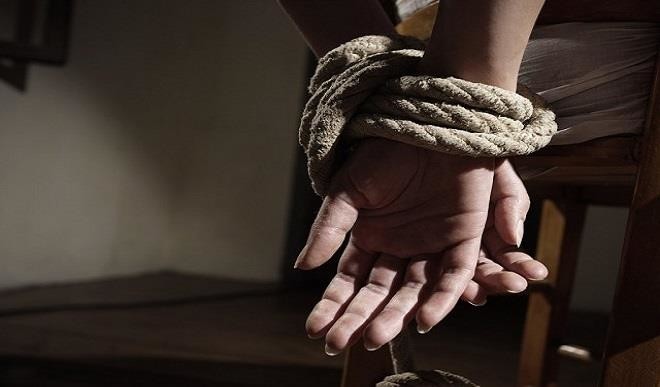In the attempt to reduce the tide of the ever-increasing rate of kidnapping in the country, the Senate on July 14, 2020 passed for third reading an amendment to the Criminal Code Amendment Act Bill which increased the jail term prescribed for kidnappers from 10 years to life imprisonment.
This followed the adoption of a report of the Senate Committee on Judiciary, Human Rights and Legal Matters on a Bill for an Act to amend the Criminal Code Act Cap.C38 Laws of the Federation of Nigeria 2004, which was presented by the committee Chairman, Senator Opeyemi Bamidele.
- Buratai: Terrorism, banditry, insurgency, kidnapping can end sooner than expected
- Kidnappers tighten noose on FCT communities
The bill seeks to, among others, provide for life sentence for persons found guilty of kidnapping as against the provisions of Section 363 of the Act, which prescribes imprisonment for a term of 10 years, where the offence of kidnapping is established.
The bill notes that the frequency of kidnapping across the country, the resultant trauma as well as the number of lives lost to the crime, all make it imperative to review existing laws with a view not only to ensuring appropriate punishment for perpetrators but also to serve as deterrent to potential offenders.
Senator Bamidele in his lead contribution to the debate on the bill said the legislation will address the lingering issue of kidnapping which, in recent times, is on the rise.
The lawmaker stated that contrary to views expressed by those opposing the passage of the bill on the ground that it would usurp the powers of the states of the federation to legislate on the subject matter, the bill seeks to amend the Criminal Code Act of 1916 and not the criminal codes of the states.
It would be recalled that in her lead debate at plenary late last year, sponsor of the bill, Senator Oluremi Tinubu, observed that the frequency of kidnap cases across the country, its accompanying trauma, and the number of lives lost to the crime, are imperatives that necessitate the review of existing laws on kidnapping.
This is with a view to ensuring appropriate punishment for perpetrators as well as deterrence for potential criminals.
She lamented over the existing provision which prescribes a more severe punishment “for stealing replaceable property than the stealing of a human being”.
Until recently, when banditry took over the crime space in parts of the country, kidnapping at a time was about the worst security challenge that confronted the nation after insurgents were degraded by troops.
In 2017, kidnapping became a ‘money-spinning job’ for criminals.
Sometime in 2018, kidnappers almost made the Abuja-Kaduna highway their den.
Last year, they stretched their nefarious activities to Nigeria’s capital city, Abuja.
This was also as the payment for ransom advanced to bitcoin. In 2019 alone, about 1,000 kidnap cases were reported in the media.
So many lives and property have been lost to perpetrators of this crime.
The trauma which some kidnap victims suffer in the hands of their abductors as well as the nightmares their family members go through are better imagined.
Due to huge losses, some traders have gone bankrupt.
To evade kidnap, many peasant farmers have abandoned their farms in areas where the crime is most pronounced.
The high incidence of this crime has also continued to divert the attention of troops from combating renewed insurgency.
Although Senator Oluremi Tinubu had maintained that life sentence is a tough punishment for persons found guilty of kidnapping, it is tougher when it is accompanied by hard labour.
Where the victim is killed, it should be the death sentence.
The bill could further be improved upon to, in addition, provide for confiscation of properties of persons guilty of the crime.
The house used for keeping kidnap victims should also be demolished.
It would seem ridiculous to have a threshold of punishment that is lower than the penalty already legislated by some states.
A heinous crime deserves a heinous punishment!

 Join Daily Trust WhatsApp Community For Quick Access To News and Happenings Around You.
Join Daily Trust WhatsApp Community For Quick Access To News and Happenings Around You.


